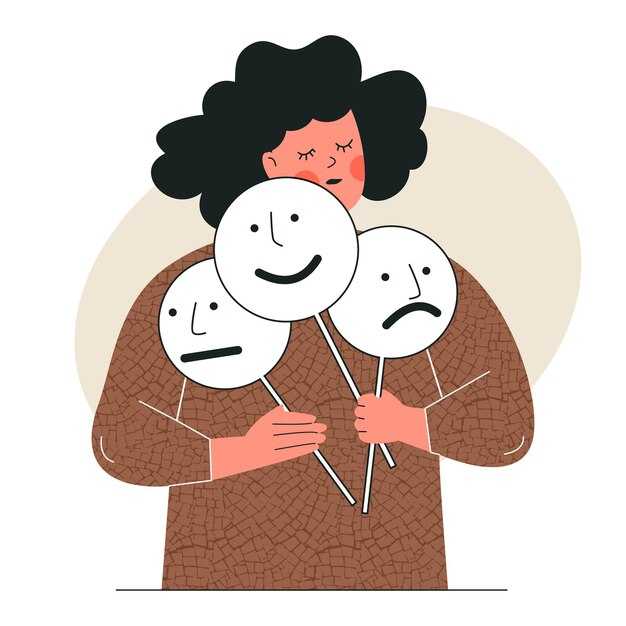I’ll be blunt: when someone walks out of your life without offering a straightforward reason, that isn’t love or consideration. It isn’t a quirky coping mechanism. It’s emotional cowardice — a kind of psychological harm. It may sound severe, but it needs saying. We’ve been conditioned to be patient, to honor “space,” to avoid taking it personally. But let’s be clear: if you gave your time, your body, your emotions, your heart to someone and they left without the simple courtesy of an explanation, that failure of decency is not your fault. It doesn’t mean you’re overly sensitive — it means they refused to act with moral responsibility. Worse, society pressures you to feel ashamed for wanting answers, as if needing closure were a weakness. It’s not. It’s human. You wouldn’t walk out of a job without notice. You wouldn’t drop your child at daycare without a goodbye. Yet somehow it’s supposed to be acceptable that someone can abandon a close relationship without one honest conversation. It’s not acceptable. Today I’ll explain why people with avoidant attachment often disappear like this, what it does to your nervous system, heart, and future, and why you deserve far better. Stop excusing those who never had the courage to stay and speak plainly. E sunk. Let’s stop sugarcoating it: avoidant people don’t simply leave — they evade. The reality is they’re avoiding something they won’t name. It’s not confusion, not mere overwhelm, not a harmless need for space. Real intimacy terrifies them, and rather than confront that terror, they flee. Here’s why. For someone with an avoidant attachment style, closeness registers as danger. Not because you harmed them, but because in their past they learned that emotional closeness equals loss of control or pain. So when a relationship becomes serious, their instinct is to withdraw: emotionally first, then physically, then gone. They disconnect, shut down, and disappear. visual person sitting alone checking phone obsessively. The disappearing partner might text and delete messages, convincing themselves it’s self-preservation — that they’re sparing you from their “mess.” But ghosting is not protection. Refusing to speak honestly is not care. It is fear masquerading as strength. The truth they won’t own up to is this: if they stayed and met your eyes, if they had to explain why they were ending things, they’d have to admit they failed to show up emotionally. They’d have to say, “I couldn’t love you the way you needed. I used you to feel wanted but never intended to stay. I took advantage of your generosity and now I’m leaving.” That level of candor is agonizing for someone who has spent a lifetime dodging emotional discomfort. Visual: Mel walks slowly, hands folded, camera following from the side. So what do they do? They pull away — first emotionally, then physically — and vanish without a real conversation, leaving you reeling, replaying every exchange, asking what you did wrong. That’s the point of avoidance: their silence pushes you to invent the story for them, to blame yourself. You start thinking, “Maybe I was too needy. Maybe I expected too much. Maybe I drove them away.” No. Intimacy scared them. Accountability scared them. The core truth: they left without explaining not because they lacked words but because they lacked courage. Visual flash cut to text. You can’t heal what you refuse to face. Avoidance is not protection — it’s self-sabotage. When someone takes your time, attention, care, and then disappears without explanation, they aren’t merely leaving you; they’re fleeing the parts of themselves that your love revealed — the places they couldn’t match, the emotional limits they couldn’t acknowledge. Rather than grow with the relationship, they ran. That’s the reality. E five number. Now consider what their silence does to you. When someone you love disappears with no clear reason, your brain doesn’t simply miss them — it flips into survival mode. Your nervous system treats their absence like a threat because humans are biologically wired for connection. When a bond is abruptly severed with no warning or reason, your system can’t process it; it spirals, replays conversations, and tries to solve a puzzle with missing pieces. Visual fast cuts of someone scrolling old messages, staring at a phone, tossing and turning in bed, crying silently. Psychologists call this ambiguous loss: a grief without a neat ending. It’s an unhealed wound left open. With ambiguous loss, your brain can’t move on; you get stuck in loops of “Was it me? Was I too much? Did I miss something?” Each unanswered question drives you deeper into uncertainty. Visual animation of a brain with neurons misfiring, looping into chaos. Silence breeds self-doubt, and that’s the real harm: you stop questioning just them and start doubting your own worth, instincts, and ability to trust your feelings. That is not closure. It’s psychological violence. Visual text appears word by word. Psychological violence is when someone breaks you and leaves you to sweep the fragments away in isolation. If someone physically harmed you, the injuries would be visible and others would help. Emotional wounds left by a silent departure are invisible, but no less damaging. You keep smiling, going to work, caring for others, while internally you feel shattered. Your nervous system is on edge; your heart pulls inward. That pattern shapes your future: you become hypervigilant, scanning new partners for threat, reading too much into silences and delays, defending instead of dating. This reaction is not weakness — it’s a trauma response. The brain is a pattern-maker; without explanations, it keeps running the same program trying to find missing data. That’s why you’re exhausted, sleepless, still flinching months later when their name appears. No closure equals a corrupted emotional file and a system stuck on repeat. You’re not crazy. You’re responding normally to abnormal behavior. We must stop trivializing ghosting as a quirky modern habit. It’s abandonment, and it causes real psychological harm. The longer the silence endures, the more you fill gaps with your worst fears, rewriting your story with shame instead of facts: “I should have seen it coming. I’m too much. Maybe I didn’t deserve an explanation.” That is the legacy of silence — it forces you to carry emotional waste they were too cowardly to handle. You deserved a conversation, eye contact, the plain truth. Instead you were left with uncertainty, and uncertainty is one of the worst environments for the human mind. If you’re still hurting and still asking why, hear this: you aren’t broken or overreacting. You’re wounded by a serious violation of emotional safety. From here on, shift the blame from yourself to where it belongs. E five number. Let’s dismantle the excuses they gave — or didn’t give — because avoidant people tend to repeat the same worn-out lines as a way to dodge responsibility. Excuse one: “I didn’t want to hurt you.” Nice phrasing, but disappearing and leaving you in chaos is not kindness — it’s cowardice. The translation is: “I didn’t want to endure the discomfort of your reaction.” That isn’t caring. Excuse two: “I’m just bad at communication.” That’s selective. When they wanted your attention and closeness, they communicated just fine. Emotional honesty is a skill that can be learned; if someone can show up at work and text “I miss you,” they can say, “I’m leaving.” Excuse three: “You’re better off without me.” The fake martyr routine. Leaving and pretending it’s a noble sacrifice isn’t heroism — it’s avoidance dressed up as virtue. Excuse four: “We just want different things.” That sounds reasonable but is often the non-explanation — a vague justification after months of intimacy, shared plans, family meetings. If you’re going to end someone’s heart, at least specify what changed. Excuse five: “I need to work on myself.” Self-work is real and valuable, but it doesn’t require disappearing from someone who loved you. Often this line hides: “I’m not ready to give you what you need,” or worse, “I want to keep you as an option while I explore other possibilities.” None of these excuses stand up because they all protect the other person’s comfort at the expense of your clarity. They’re getaway doors for people who want intimacy without responsibility — love without the labor of loving back. Every time you accept these explanations without challenge, you cede your power. Today you reclaim it: excuses don’t heal, they don’t explain, and they only keep them tidy while leaving you bleeding. You no longer need crumbs; you deserve honesty. E five number. Now let’s shift focus to you, because this isn’t only about their wrongdoing. It’s about what you were owed and never received. You didn’t merely lose a relationship; you lost answers, truth, and the dignity of a proper goodbye. Hear this plainly and let it land: you deserve an explanation — not silence, not platitudes, not “I’m not ready,” not “It’s not you, it’s me.” You deserve a coherent, emotionally responsible account: when did they begin to check out? What changed? Did anything you offered matter or was it a convenient performance to keep you accessible until they were ready to leave? You deserve to know whether they ever intended to stay or were always half out the door, waiting for the first emotional inconvenience. You deserve recognition for what you gave — your time, trust, presence, care, your body. They benefited from your emotional labor; when they walked away, they left a vacuum you’ve had to try to fill with no map. You deserve clarity about whether their love was real or merely a performance, because it matters whether they meant it or used it to keep you available while planning their exit. You deserve to know whether they left due to genuine incompatibility or because they were emotionally underdeveloped and unwilling to do the work of connection. You deserve a timeline: when did they start thinking about leaving? Did they ever try to repair things, or was the decision already made and they just waited for convenience? That isn’t paranoia; it’s emotional intelligence. Wanting answers so you don’t repeat the same pain is maturity, not melodrama. You also deserve to understand the consequences of their choice — the ways you rearranged life, postponed plans, softened boundaries — because those sacrifices were real. Pretending their departure was neat is gaslighting. You deserve an apology for the silence and the confusion, even if you never receive it. Above all, you deserve to stop doubting yourself, stop softening your need for clarity because someone else refused to act like an adult. You are not needy, dramatic, or too much. You are a whole person with a right to understand what happened in your relationship. If they never explain, remember this: their refusal to do so reflects their emotional immaturity, not your value. That’s not weakness; it’s wisdom. Don’t forget it. E five number. We must stop pretending they left because they were merely “confused” or “needed space.” That’s a cover story. Here’s what they dare not admit — and wouldn’t say even to themselves: “I left because being loved by you terrified me. Your love exposed me, made me feel seen, and I didn’t know how to handle it. I thought I wanted intimacy until I realized it demanded vulnerability, consistency, and effort. I wasn’t willing to change, so I left because leaving is easier than growing.” They didn’t leave because of something you did; they left because your presence forced them to confront parts of themselves they’ve long avoided: a fear of closeness, numbness, an inability to receive love without feeling trapped. You didn’t scare them — your reflection in their love did. They also won’t admit they enjoyed the perks of your affection — the attention, validation, and care — until you asked for reciprocity, at which point they slammed the brakes. They liked the benefits but never intended to match you. Sometimes the truth is harsher: they left because they wanted something easier, someone less demanding of vulnerability, or because they met someone new and lacked the courage to end things properly. Or worst of all: they never intended the relationship to become serious; when you took them seriously, they panicked and ran. Why can’t they say that? Because admitting it would force them to confront the fragile story they tell themselves — that they’re good people doing their best — and that would shatter their self-image. The reality is they chose themselves in a selfish way, not a healthy one. They weren’t emotionally present or relationship-ready, unable to do the work that real love requires. They left not because you were too much, but because your love made them feel too small. They picked comfort over growth, image over truth, distance over depth — and they won’t return with a genuine explanation because deep down they know they broke something sacred and cannot face the wreckage. So don’t romanticize the absence or dress up emotional cowardice in poetic language. Don’t chalk it up to fate or call it closure. Call it what it is: avoidance — and walk away with your head high. A five number. One of the hardest things you may still be doing is protecting them — composing justifications in your head, excusing the pain they caused. Stop. You’ve been offering forgiveness they never asked for, defending someone who didn’t give you the courtesy of honest closure. You tell yourself they couldn’t handle love, that they didn’t mean to harm you, that their silence is simply trauma. Maybe they are wounded. But trauma is not an excuse to inflict new wounds. Understanding someone’s damage is different from absorbing the price for it. This is emotional enabling: holding their hand in your imagination while they’ve already released yours in reality. Stop assigning them more empathy than they gave you. Stop gifting forgiveness to someone who never requested it. Stop mistaking their silence for self-care when it was selfishness plain and simple. The reason you construct narratives for them is to make sense of the pain so it hurts less. But subtle truth: that isn’t healing — it’s narrating the wound. You keep filling silence with meaning so you don’t have to sit with what it actually was: betrayal, a vanishing act, a refusal to honor what you shared. The hardest truth is that someone took your love, your care, your loyalty, and left without explanation, choosing silence as their path out even as you broke apart. Today, stop being their PR team. Stop spinning their story. Stop writing chapters they abandoned. Let silence be silence, immaturity immaturity, and cowardice cowardice. Wanting closure doesn’t make you weak, but trying to extract it from someone who never intended to give it renders you powerless. They left by choice. That wasn’t love, and it wasn’t growth. From this point forward, you get to choose. Stop making excuses for them and start authoring your recovery. You don’t owe them understanding; they owed you honesty and didn’t deliver. Walk forward without their words, but with your power. E five number. You’ve heard enough about them; now it’s time to focus on you and what comes next. Whether you ever get an explanation or they vanish for good, you still have to move forward. You can stay stuck in reruns of confusion, rereading messages and doubting your worth, or you can decide now that their silence will not define your story. Their behavior is the explanation. If someone walks away from a real connection without the courage to communicate, that says everything: they weren’t ready, they couldn’t handle your love, they weren’t capable of honesty. That’s not your failure; it’s proof of their limitation. So stop chasing closure and stop rehearsing pain. Stop auditioning someone in your mind who already ghosted their role. Take the love you invested and redirect it inward — into boundaries, into truth, into healing. From now on, only let people into your life who do three things: show up, tell the truth, and remain present when it gets hard. Anything less doesn’t get access to your heart. Your job is not to be enough for people who aren’t emotionally available. Your job is to be rooted in your worth so that when someone leaves without explanation, you don’t shrink — you grow. Let your boundaries be louder than your wounds. Let your silence be sacred, not desperate. Let your recovery be yours and not contingent on whether they ever come back. When doubt creeps in, remind yourself: you showed up with love and honesty. You asked for respect. When you didn’t get it, you moved forward anyway. This is more than a breakup — it’s a rebirth, a moment when you stop doing unpaid emotional labor for people who won’t meet you halfway. You stop mistaking confusion for love and begin a clearer life. You may never receive the words you deserved from them, but you can give yourself something better: a boundary and a new chapter that starts with power, not the hope they’ll return. You didn’t lose them — you lost someone who never had the capacity to keep you. Now you get yourself back.



 Ο Αποφευκτικός Σου Χρωστάει Περισσότερα από Μια Έξοδο (Ειλικρινά Ωμά) | Mel Robbins motivational">
Ο Αποφευκτικός Σου Χρωστάει Περισσότερα από Μια Έξοδο (Ειλικρινά Ωμά) | Mel Robbins motivational">

 Σημαίνουν για σένα τα συναισθήματά τους;">
Σημαίνουν για σένα τα συναισθήματά τους;">
 Ακόμα Λείπουν; Τα 5 Βήματα Θεραπείας Θα Σε Απελευθερώσουν από το Μάγια του Αποφευκτικού | Mel Robbins">
Ακόμα Λείπουν; Τα 5 Βήματα Θεραπείας Θα Σε Απελευθερώσουν από το Μάγια του Αποφευκτικού | Mel Robbins">
 How to Break Free of ENTANGLEMENT With Exes">
How to Break Free of ENTANGLEMENT With Exes">
 Ο κρυφός πόνος της ΔΕΠΥ στις γυναίκες για τον οποίο κανείς δεν μιλάει">
Ο κρυφός πόνος της ΔΕΠΥ στις γυναίκες για τον οποίο κανείς δεν μιλάει">
 My Marriage DIED because I couldn’t Communicate!">
My Marriage DIED because I couldn’t Communicate!">



 How to be a GREAT Husband">
How to be a GREAT Husband">
 Δεν κατάλαβα τη γυναίκα μου μέχρι να κάνω ΑΥΤΟ">
Δεν κατάλαβα τη γυναίκα μου μέχρι να κάνω ΑΥΤΟ">